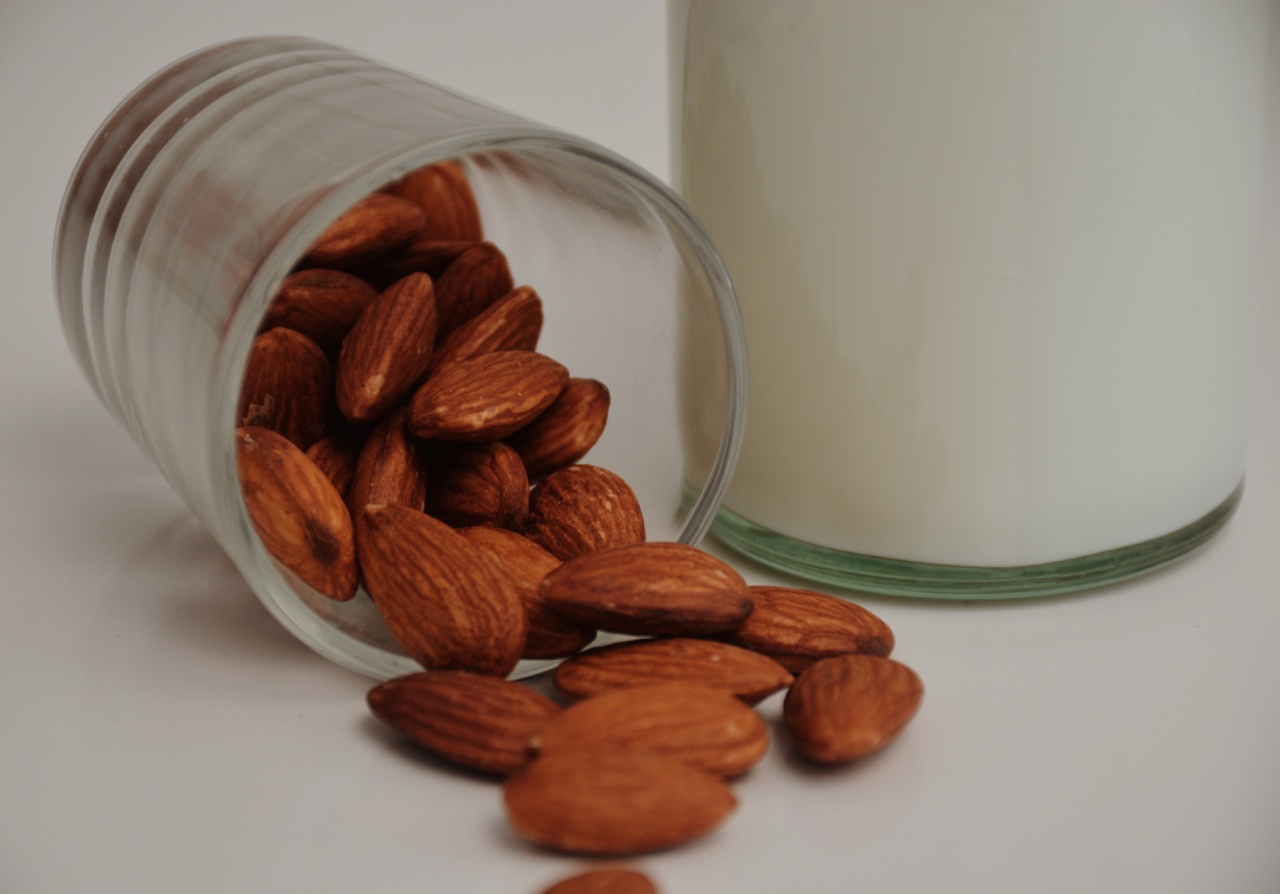Almond milk has gained popularity in recent years as a dairy-free alternative for those who are lactose intolerant, vegan, or simply looking to change up their milk consumption.
Almond milk is made by blending almonds with water and then straining out the pulp, resulting in a creamy and nutty flavored beverage that can be used in various recipes. Aside from being a tasty alternative, almond milk also offers several nutritional benefits that make it a worthy addition to your diet. Let’s explore these nutritional benefits in detail.
1. Rich Source of Essential Vitamins and Minerals
Almond milk is rich in various essential vitamins and minerals that are vital for overall health and well-being. It contains significant amounts of vitamin E, which acts as a powerful antioxidant in the body.
Antioxidants help protect cells from damage caused by free radicals, reducing the risk of chronic diseases such as heart disease and certain types of cancer.
In addition to vitamin E, almond milk also contains B vitamins, including riboflavin (B2), niacin (B3), and vitamin B6. These vitamins play a crucial role in energy production, brain function, and the formation of red blood cells.
Furthermore, almond milk is a good source of minerals such as calcium, magnesium, and potassium.
Calcium is essential for building and maintaining strong bones and teeth, while magnesium and potassium contribute to muscle function, heart health, and maintaining electrolyte balance.
2. Healthy Fats in Almond milk
Almond milk is known for its healthy fat content. While it is low in saturated fats, it is rich in monounsaturated fats, which are considered heart-healthy fats.
Monounsaturated fats can help lower bad cholesterol levels, reducing the risk of heart disease and stroke.
Including almond milk in your diet can contribute to a healthier lipid profile by increasing the levels of good cholesterol (HDL) while decreasing the levels of bad cholesterol (LDL).
3. Antioxidant Properties of Almond Milk
Almond milk contains a generous amount of antioxidants, which can help protect the body against oxidative stress. Oxidative stress occurs when there is an imbalance between free radicals and antioxidants in the body, leading to cellular damage.
The antioxidants found in almond milk, including vitamin E and other phytochemicals, can help neutralize free radicals and reduce the risk of chronic diseases such as heart disease and certain cancers.
4. Almond Milk for Digestive Health
Almond milk is lactose-free, making it a suitable option for individuals who are lactose intolerant or have difficulty digesting dairy products.
Lactose intolerance is a common condition where the body lacks the enzyme lactase required to digest lactose, the sugar present in milk.
By choosing almond milk, individuals with lactose intolerance can still enjoy the taste and nutritional benefits of milk without experiencing digestive discomfort such as bloating, gas, or diarrhea.
5. Bone Strength and Almond Milk
Almond milk is often fortified with calcium, a mineral essential for bone health. Adequate calcium intake is crucial for the maintenance of strong and healthy bones, preventing conditions like osteoporosis.
Regular consumption of almond milk can help ensure sufficient calcium intake, especially for those who follow a dairy-free or vegan lifestyle. It is important to choose fortified almond milk to maximize the calcium content.
6. Heart Health Benefits of Almond Milk
The healthy fat content in almond milk, specifically monounsaturated fats, can positively impact heart health. These fats have been shown to reduce LDL cholesterol levels, lowering the risk of heart disease and stroke.
In addition to healthy fats, almond milk is also low in sodium and cholesterol, making it a heart-healthy beverage option. Including almond milk as part of a balanced diet can be an effective strategy for maintaining cardiovascular health.
7. Almond Milk for Weight Management
For individuals aiming to manage their weight or lose weight, almond milk can be a valuable addition to their diet plan. Compared to whole milk, almond milk is lower in calories and fat, making it a lighter option.
Including almond milk in your diet can help reduce calorie and fat intake while still providing essential nutrients. This can contribute to a calorie deficit, which is necessary for weight loss.
However, it is important to choose unsweetened almond milk to avoid added sugars.
8. Almond Milk and Skin Health
Almond milk is not only nutritious but can also benefit your skin health. The vitamin E content in almond milk provides antioxidant properties that help protect the skin from damage caused by free radicals.
Drinking almond milk regularly may help improve the appearance of your skin by reducing signs of aging such as wrinkles, fine lines, and age spots. Additionally, the healthy fats present in almond milk can contribute to moisturized and glowing skin.
9. Dairy Alternative for Allergies and Sensitivities
Many individuals suffer from allergies or sensitivities to dairy products. Almond milk offers a suitable alternative that is free from common allergens such as lactose and casein.
Individuals with lactose intolerance, milk protein allergies, or those following a vegan lifestyle can enjoy the benefits of almond milk without any adverse reactions or complications.
10. Versatility in Culinary Uses
Aside from its nutritional benefits, almond milk is highly versatile and can be used in various culinary applications. It is commonly used as a replacement for regular milk in recipes such as smoothies, baked goods, and sauces.
Almond milk can add a creamy and nutty flavor to your culinary creations while providing essential nutrients. Whether you are lactose intolerant, vegan, or simply looking to switch things up in the kitchen, almond milk is an excellent option.
In conclusion, almond milk offers numerous nutritional benefits, making it a valuable addition to any diet. Its rich source of essential vitamins, minerals, healthy fats, and antioxidants make it a favorable dairy alternative.
The potential health benefits of almond milk extend to digestion, bone strength, heart health, weight management, and skin health. Whether you choose almond milk for its taste, nutritional value, or culinary versatility, it is an excellent choice for those looking to incorporate a dairy-free option into their lifestyle.






























